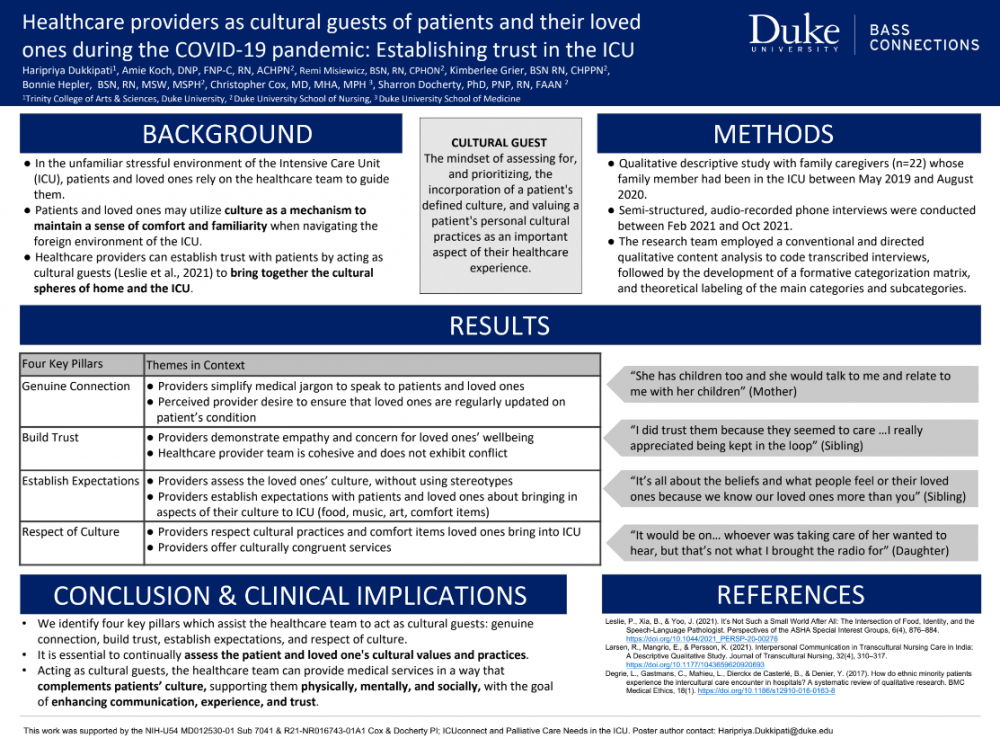Improving Communication for Patients with Serious Illness
Project Team
Patients who are facing a serious illness must make numerous complex healthcare decisions that will determine what treatment they receive, what their quality of life will be and how long they will survive. Too often, patients and their families must make these decisions without adequate communication about their hopes, fears, values and goals. As the population ages, and as healthcare decisions become more complicated, it is increasingly important to ensure that all patients have access to thoughtful, open and accurate communication about their goals.
REGAIN is a collaboration between Duke Health (including the School of Medicine and the School of Nursing) and Duke University. The aim is to develop and implement a roadmap for goals of care conversations for Duke Health patients with serious illnesses. Led by the Duke Center for Palliative Care, and supported by the health system and academic partners, REGAIN will be Duke Health’s strategy for ensuring that all patients have access to open accurate and empathetic communication about their goals for care.
In 2021-2022, team members worked with faculty mentors to investigate patient-provider communication and communication between patients and their loved ones.
Healthcare Providers as Cultural Guests of Patients and Their Loved Ones During the COVID-19 Pandemic: Establishing Trust in the ICU
Poster by Haripriya Dukkipati, Amie Koch, Remi Misiewicz, Kimberlee Grier, Bonnie Hepler, Christopher Cox and Sharron Docherty
In the Intensive Care Unit (ICU), patients and their loved ones may utilize culture as a mechanism for healing and comfort to bridge the gap between their home environment and the foreign, often stressful environment of the ICU. This subteam investigated the experience of having a loved one in the ICU before and during the COVID-19 pandemic, and how healthcare providers can act as cultural guests, supporting patients and their loved ones while in the ICU by enhancing trust and communication. They identified four key pillars that foster healthcare team members to develop a cultural guest mindset: genuine connection, building trust, establishing expectations and respecting culture.
Objectively Measured Affective Expression in Cancer Patients by Cancer Stage and Gender
Poster by Evan Liu, Karena Leo, Katherine Ramos, Laura Porter, Shelby Langer and Brian Baucom
Effective communication about cancer-related emotional experiences between partners is an important aspect of coping with the disease. This subteam examined patients' affective expressions during cancer-related conversations with their partners as a function of cancer stage and gender using observational methods. Results suggest that male-identifying patients may be more likely to suppress their emotional expressions, whereas female-identifying patients were more likely to show vulnerability and distress.


